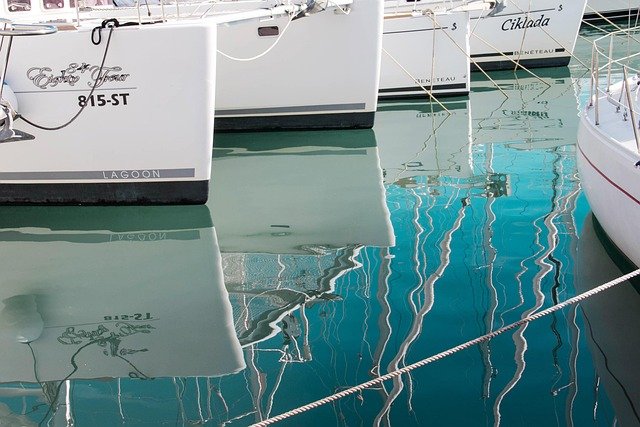Police Impound Boats for Sale: How Auctions Work and What Buyers Should Know
Police impound boat auctions offer unique opportunities to purchase vessels at potentially reduced prices, but buyers need to understand the process thoroughly. These sales typically involve boats seized due to various legal violations, abandoned vessels, or those used in criminal activities. Understanding auction procedures, inspection requirements, and legal documentation is essential for making informed purchasing decisions in this specialized market.

Police impound boat auctions represent a distinct segment of the marine vessel market where law enforcement agencies sell seized, abandoned, or forfeited watercraft. These auctions operate under specific legal frameworks and offer both opportunities and challenges for prospective buyers seeking marine vessels at competitive prices.
Where Police Impound Boats Come From and How Inventory Is Released
Police impound boats originate from various law enforcement activities and legal proceedings. Vessels may be seized during drug trafficking investigations, customs violations, or other criminal activities where boats serve as evidence or assets subject to forfeiture. Abandoned boats found in public waters or marinas also enter police custody when owners cannot be located or refuse to claim their vessels.
The release process follows strict legal protocols. After seizure, boats typically undergo a holding period during which owners can reclaim their vessels by paying fines, storage fees, and resolving legal issues. When this period expires without resolution, authorities may declare the vessels surplus property eligible for public auction. Some jurisdictions require court orders before proceeding with sales, particularly for boats seized as criminal evidence.
Inventory release schedules vary by jurisdiction, with some agencies conducting quarterly auctions while others hold annual sales. Agencies must provide public notice of upcoming auctions, typically through newspaper advertisements, government websites, and auction house listings. The notification period usually ranges from two to four weeks before the sale date.
Types of Boats Commonly Available and What Buyers Typically Look For
Police impound auctions feature diverse vessel types reflecting the circumstances of their seizure. Recreational boats including fishing vessels, pleasure craft, and small sailboats comprise the majority of available inventory. Speed boats and high-performance vessels often appear due to their association with smuggling operations or racing violations.
Commercial vessels such as fishing boats, charter craft, and work boats occasionally become available through business-related legal proceedings. Luxury yachts and expensive recreational vessels may appear in auctions following major criminal investigations or asset forfeiture cases.
Buyers typically seek vessels with clear titles, minimal damage, and reasonable market value potential. Popular categories include family recreational boats, fishing vessels with specialized equipment, and project boats for restoration enthusiasts. Many buyers focus on newer models with lower engine hours, though vintage boats with historical significance also attract interest.
Successful buyers often target specific boat types matching their intended use, whether for personal recreation, commercial fishing, or resale purposes. Understanding local boating conditions and market demand helps buyers identify vessels with strong resale potential or practical utility.
Inspection Tips, Bidding Rules, and Key Documents to Review Before Purchase
Thorough pre-auction inspection proves crucial for successful purchases. Most agencies allow preview periods where prospective buyers can examine vessels, though access may be limited to specific hours and locations. Buyers should inspect hull condition, engine functionality, electrical systems, and safety equipment. Bringing marine survey tools or hiring professional inspectors can reveal hidden problems not immediately apparent.
Documentation review requires careful attention to legal details. Buyers must verify clear title transfer capability, outstanding liens, and any restrictions on vessel use. Some boats may carry salvage titles or require specific certifications before legal operation. Registration requirements vary by jurisdiction and vessel type, with some requiring immediate compliance with local boating regulations.
Bidding procedures follow established auction protocols with specific registration requirements. Buyers typically must provide identification, proof of funds, and complete bidder registration forms before participating. Payment terms usually require immediate full payment or substantial deposits, with cash, certified checks, or wire transfers as acceptable payment methods.
Auction terms and conditions outline buyer responsibilities, including vessel removal deadlines, storage fees for delayed pickup, and “as-is” sale conditions that limit seller liability. Understanding these terms prevents unexpected costs and legal complications after purchase.
| Auction Type | Average Cost Range | Payment Requirements |
|---|---|---|
| Local Police Auctions | $500 - $15,000 | Cash/Certified Check |
| Federal Asset Forfeiture | $2,000 - $50,000 | Wire Transfer/Cashier’s Check |
| Coast Guard Auctions | $1,000 - $25,000 | Multiple Payment Options |
| Municipal Surplus Sales | $300 - $8,000 | Cash/Money Order |
Prices, rates, or cost estimates mentioned in this article are based on the latest available information but may change over time. Independent research is advised before making financial decisions.
Police impound boat auctions provide opportunities for acquiring marine vessels at competitive prices, but success requires thorough preparation and understanding of legal requirements. Buyers who research auction procedures, inspect vessels carefully, and understand documentation requirements position themselves for successful purchases in this specialized market segment.




